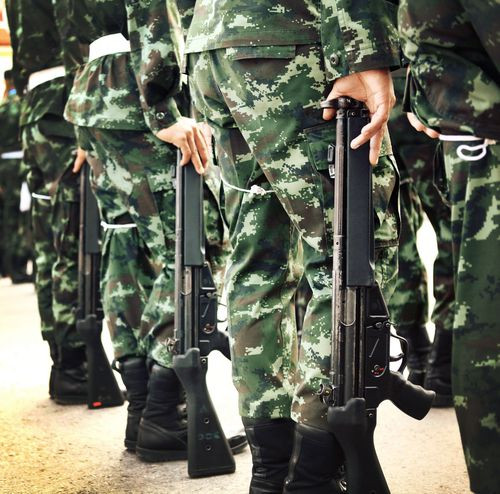Depression More Likely In Military Personnel Taller Or Shorter Than Average Colleagues

Emotional challenges are part of a serviceman’s life. Right from the tough training in boot camp, to deployment in war zones, and time away from family and loved ones can lead to an emotional upheaval serious enough to be diagnosed as depression. Now a new study shows how the height of a person can change his susceptibility to developing depression.
The study published Wednesday in the open access journal SAGE Open suggests personnel who are either shorter or taller than the average height are more prone to depression than their average-sized colleagues. In an earlier study, the researchers Valery Krupnik and Mariya Cherkasova found that shorter men in uniform were more prone to depression. But in their new hypothesis, they suggest that men both shorter and taller than average by one standard deviation may be predisposed to higher rates of depressive disorders.
They came to this conclusion after studying the records of 196 men who had been diagnosed as being depressed by a mental health clinic serving active duty personnel.The patients were split into three height groups and ranked based on the severity of their depressive disorder. While there was a correlation between height and the susceptibility to depressive disorder, it did not imply anxiety disorder diagnosis.
This research can be used to identify personnel who are more prone to developing depression symptoms. "To our knowledge, there are no preventive programs specifically targeting shorter or taller boys," the authors said in a statement. "We believe that such programs implemented in school could be beneficial for them in developing higher resilience to the pressure of low social status based on body height."
Depression is the fourth most prevalent disease in the world, and an estimated one in 10 Americans suffer from it. Military men are more prone to depression than your average man, as they have to face extraordinary circumstances such as, combat experience, absence from loved ones, the loss of colleagues who may be friends, in combat. Also factors like stressful situations, bankruptcy, moving away from home or country, and ending a relationship can cause depression symptoms. One in three soldiers will suffer from depression after serving in Iraq or Afghanistan, according to a report.
While genetics may be partly responsible for developing depression, substance abuse or physical characteristics like height may also play a role. Depression is treatable, and campaigns such as The Real Warriors Campaign have been launched by the Defense Department to encourage personnel to reach out and seek help for their psychological needs.
Source: Krupnik V, Cherkasova M. Size Matters: Stature is Related to Diagnoses of Depression in Young Military Men, Sage Open. 2014.
Published by Medicaldaily.com



























